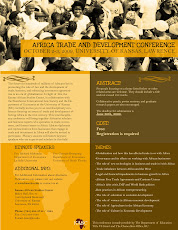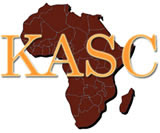Somali pirates attack French military flagship

 KASC invites you to the upcoming lecture: "The Politics of Piracy in Somalia" by Dr. Abdi Samatar of University of Minnesota. This lecture is a part of the African Studies Seminar Series
KASC invites you to the upcoming lecture: "The Politics of Piracy in Somalia" by Dr. Abdi Samatar of University of Minnesota. This lecture is a part of the African Studies Seminar Series
Date: October 22, 2009
Time: 03:30PM - 05:00PM
Location: Kansas Union, English Room
Department: Kansas African Studies Center
Contact: 785-864-3745, cpearman@ku.edu
Ticket Cost: Free
NAIROBI (AFP) – Somali pirates attempted to storm the French navy's 18,000 tonne flagship in the Indian Ocean after mistaking it for a cargo vessel, the French military said on Wednesday.
The crew of La Somme, a 160-metre (525-foot) command vessel and fuel tanker, easily saw off the brazen night-time assault by lightly armed fighters on two lightweight skiffs and captured five pirates, a spokesman said.
"The pirates, who because of the darkness took the French ship for a commercial vessel, were on board two vessels and opened fire with Kalashnikovs," Admiral Christophe Prazuck said in Paris.
La Somme is the French command vessel in the Indian Ocean, overseeing French air, sea and land forces fighting Somali pirates and hunting terrorists under the banner of the US-led Operation Enduring Freedom.
Officers on the ship have directed commando operations to free French hostages in the hands of Somali pirates.
The pirates tried to flee when they realised their mistake but were pursued by French forces who, after an hour-long chase, caught one of the skiffs, Prazuck said.
On it they found five men but no weapons, water or food as the pirates had apparently thrown all of the boat's contents overboard, the spokesman said.
A Western official at sea in the area, speaking to AFP on condition of anonymity, said that there had been an exchange of fire between the warship and the pirate launches.
"One of the skiffs managed to get away in the night because La Somme was busy with the first pirate boat," he said.
"Despite the arrival of other vessels, they haven't yet managed to find the second boat," he said, adding that many warships in the area were busy hunting another group which attacked a cargo ship off the Seychelles on Sunday.
The world's naval powers have deployed dozens of warships to the lawless waters off Somalia over the past year to curb attacks by pirates in one of the world's busiest maritime trade routes.
La Somme was operating 250 nautical miles (460 kilometres) off the Somali coast, on its way to resupply fuel to frigates patrolling shipping lanes as part of the European Union's Operation Atalanta anti-piracy mission.
This was not the first time that Somali pirates have mistakenly attacked a French naval vessel. Several pirates were captured in May when they attempted to board a frigate in the area.
Somalia has had no proper government since it plunged into lawlessness after President Mohamed Siad Barre was overthrown in 1991.
The country is riven by factional fighting and pirate gangs operate freely from several ports along its Indian Ocean and Gulf of Aden coasts.
According to the environmental watchdog Ecoterra International, at least 163 attacks have been carried out by Somali pirates since the start of 2009 alone, 47 of them successful hijackings.
Last year, more than 130 merchant ships were attacked, an increase of more than 200 percent on 2007, according to the International Maritime Bureau's Piracy Reporting Centre in Kuala Lumpur.
Pirates have in recent weeks resumed attacks with the end of the monsoon season. Last week Somali gunmen captured Spanish fishing boat The Alakrana with 36 crew members in the Indian Ocean.
The US Maritime Administration warned last month that the end of the monsoon season was likely to bring an increase in piracy off Somalia and urged shipping companies to be vigilant.
Calmer waters allow pirates, who often operate in small fibreglass skiffs towed out to sea by captured fishing vessels, to hijack freighters, trawlers and private yachts. Cruise vessels have also been attacked.
http://news.yahoo.com/s/afp/20091007/wl_africa_afp/somaliapiracyshippingfrance_20091007151820 Read more...





